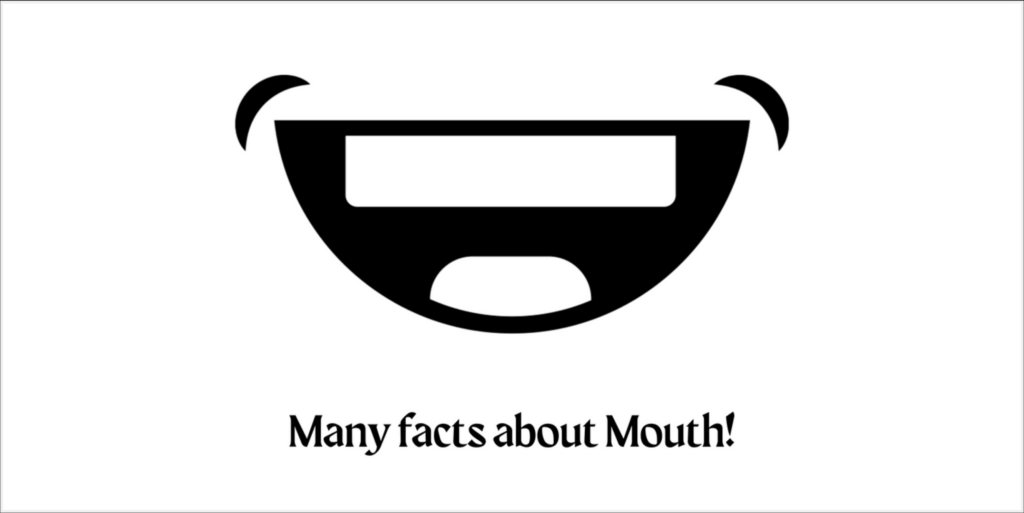Functions of the mouth
The functions of the mouth are discussed precisely in this article. The mouth is an essential part of the digestive system. This oval-shaped opening in your skull begins at your lips and extends all the way down to your throat. In addition to communication, your mouth is involved in the intake of oxygen and nutrients into your body. The oral cavity is another name for it. The tissue that lines the inside of the cheek is known as the “buccal mucosa.”
This structure is made up of two parts: the vestibule (the space between the cheeks and the teeth) and the oral cavity itself. The tongue, a large muscle that is firmly attached to the floor of the mouth by a frenulum called the “linguae frenulum,” takes up almost all of the remaining space. The mouth and the structures within it play an essential role in the development of human speech, in addition to playing a primary role in food ingestion and the early stages of digestion.
Parts of the mouth
The perimeters of your mouth keep food in place so you can chew properly and articulate sounds and words. The palate is the ceiling of your mouth that distinguishes the nasal cavity, also known as the nose area, from the mouth. It is made up of both muscle and bone.
Chewing is one of the functions of the mouth. Within your mouth, you will find the following structures:
- The oral mucosa: It is an inner layer that covers the entire interior of your mouth.
- Gums: They are made of tissue that serves as a foundation for your teeth.
- The sensory receptors: They are positioned all through your mouth and allow you to detect the temperature and texture of foods and drinks.
- Salivary glands: Saliva is produced by the three pairs of glands in the oral cavity.
- Teeth: Your mouth’s 32 teeth are responsible for grinding and tearing food in preparation for swallowing and digestion.
- Taste buds: These cells contribute to the sensing of tastes and flavours.
- Uvula: This piece of flesh that hangs behind the palate and is located in the back of the mouth assists in moving food from the mouth into the throat.
- Tongue: It is a strong muscle with taste buds all over its surface. It aids in the movement of food in your mouth and aids in speaking.
Health issues and problems that affect the mouth
Several conditions might affect your mouth. Poor oral hygiene can cause halitosis, or foul breath, although this isn’t invariably the case. It may also be caused by various medical disorders, such as heartburn, dry mouth, or sickness in another region of your body. The root cause determines the treatment for halitosis.
Swallowing, tasting, and talking are included in the functions of the mouth. Tooth issues include an accumulation of dental plaque, cavities, impacted wisdom teeth, or an abscessed tooth.
Issues affecting the gums include periodontitis and gingivitis. Periodontitis, a kind of gum disease, is characterised by severe inflammation of the gums, with indications such as bleeding, red, or swollen gums. If periodontitis is not treated, tooth loss may occur. Treatment may include comprehensive cleaning and, in extreme circumstances, surgery. Regular brushing and flossing can help prevent periodontitis.
Gingivitis is a minor form of initial gum disease that happens when bacteria and plaque accumulate in the mouth and cause inflammation. While gingivitis may not always result in symptoms, it can make the gums swollen, red, and painful. Regular dental visits and proper oral hygiene at home can help clean up gingivitis and prevent it from worsening.
Cold sores or other ulcers, oral cancer, dry mouth, infections, trauma or injury, and speech impairments are examples of additional mouth ailments.
Tips for a healthy mouth
By maintaining good dental hygiene, you can maintain the health of your teeth, gums, and mouth. It includes seeing your dentist regularly and leading a healthy lifestyle. Brush your teeth twice daily, as well as your tongue and the regions surrounding your mouth. Use good toothpaste or toothpowder in your dental hygiene routine.
Digesting foods and drinks is one of the functions of the mouth. Consume nutritious foods while minimising your intake of sugar. Consume a lot of water and reduce sugary drinks like soda as much as possible. One time every day, you should floss the space between your teeth.
Don’t even think of lighting a cigar (that is, smoking) or chewing tobacco. The oral cavity, often known as the mouth, is vital to the functions of breathing, eating, talking, and drinking. A healthy mouth’s teeth are pink, moisturised, and firm, and they do not produce discomfort. If you are worried regarding your oral health, consult a dentist or other medical professional and plan to have a checkup at least once every year.



